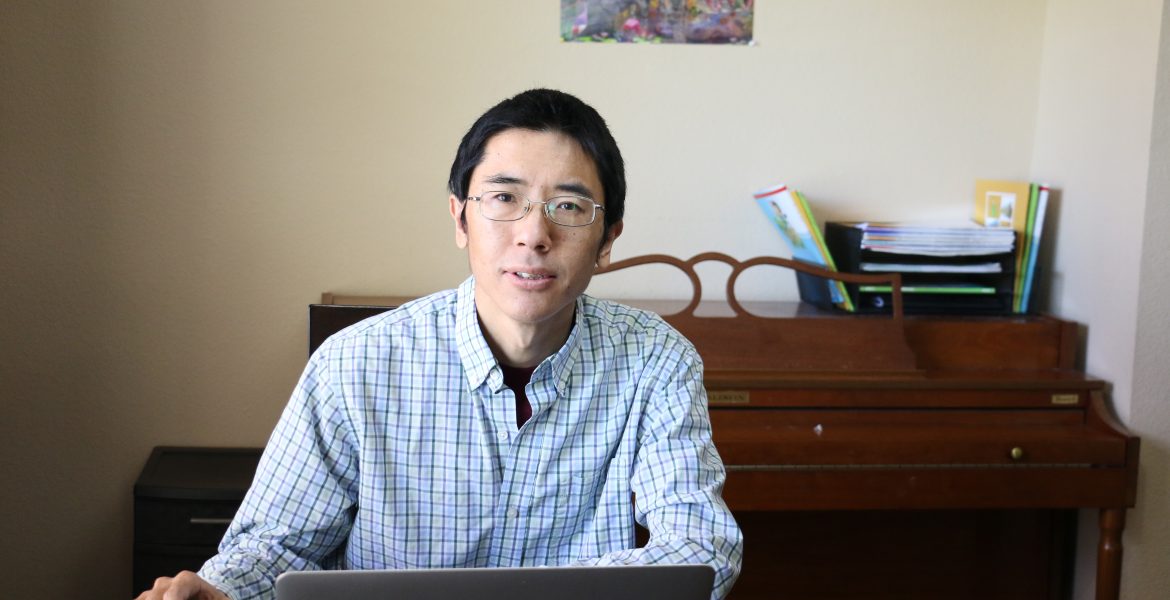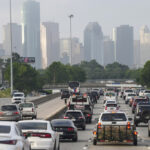Biology senior Yopi Nipha Xayyapanya tries to shop only at her local Asian markets because she fears she will face discrimination elsewhere because of anti-Asian sentiments sparked by the coronavirus.
“I am an American of Asian descent afraid to go grocery shopping due to all of the news of Asians being attacked,” said Xayyapanya, of Laotian descent.
Whenever she goes out in public, Xayyapanya tries to finish her tasks as quickly as possible to go back home where she feels safe.
Researchers have seen an increase of anti-Asian racism because of COVID-19. Asians have been blamed for spreading the virus. The Asian Pacific Policy and Planning Council released a statement April 22 saying STOP AAPI HATE has received nearly 1,500 reports of coronavirus-related discrimination from Asians since its official launch on March 19.
In March, the FBI alerted law enforcement agencies that as COVID-19 continues to spread, there will be an increase of Asian-American hate crimes. According to the FBI, it is assumed part of the U.S. population will be relating COVID-19 to Asian-Americans.
Lauren Hagee, the FBI spokesperson, has said the agency is committed in pursuing national security and in following up on federal law violations.
Kun Gou, an assistant professor of mathematics from China, said there are many reasons people blame China for spreading the virus. The virus originated in China and the Chinese government was inefficient in containing it, Gou said, adding that China failed to stop international travel in a timely manner. Some people also believe the Chinese government withheld information about the virus when it initially started to spread.
This blame on Asians has led to an increase of xenophobia in the U.S., according to Gou. Some Asians have experienced discrimination.
“In the news articles the word xenophobia is mentioned more and more, that’s true, there are also more and more violent or nonviolent attacks against Chinese and other Asian people,” Gou said.
According to the NBC News article “Federal agencies are doing little about the rise in anti-Asian hate” published April 16, Asians across the country have experienced assault in different forms. They have been spit on, kicked, pushed and stabbed. A man in Texas has stabbed an Asian-American man and his two children in a Sam’s Club. The F.B.I. has classified this as a hate crime.
Public Integrity, a nonprofit investigative organization in the U.S., has said many choose not to report these acts of discrimination because they do not want to make it a big deal or are unaware that it is illegal.
The Centers for Disease Control and Prevention said they are trying to reduce the stigma around Asians in relation to COVID-19. According to the CDC, Asian descents that live in the United States that have not recently been where COVID-19 is still spreading are not more likely to spread the disease than any other American.
The Trump Administration has not addressed this issue, according to NBC News. President Donald Trump has referred to COVID-19 as the “Chinese virus.”
However, Trump did post a tweet March 23 that said, “It is very important that we totally protect our Asian American community in the United States, and all around the world. They are amazing people, and the spreading of the Virus…. is NOT their fault in any way, shape, or form.”
Still, the NBC News story noted the lack of an official, collective response from federal agencies such as the Justice Department.
Gou is not surprised the Trump Administration has not addressed the issue. He does not expect them to address it, and said it is very unlikely they will do anything to protect Asians in the country.
International business senior Vivian Tran, president of the Asian Student Association, said the president is using the term “Chinese virus” as a way to blame China for the pandemic and it promotes racism, allowing others to blame Asians as well. Gou said this also causes Asians to feel self-blame.
“It started off in China. It doesn’t necessarily mean it’s a Chinese disease,” said Vietnamese-American Tran.
Tran said she has received dirty looks in public while grocery shopping by other shoppers and employees. She is grateful she has not been attacked nor her family, but does not always feel safe in public.
“People are looking for something to blame, but at the same time, it’s xenophobia,” Tran said.
Asians in the United States are not responsible for the virus, Gou said. People should not blame all Chinese people for the spread of the virus either. This could have happened anywhere in the world with any virus; it just happened to be in China.
The Equal Employment Opportunity Commission has said their antidiscrimination laws are still being enforced. They have begun monitoring discrimination in the workplace in relation to coronavirus and are investigating discrimination complaints to the fullest, according to the EEOC.
Gou said this is not a majority mentality, but just a few people. Still, Asians are becoming more cautious when they are in public to avoid being attacked, himself included. Gou only leaves his home when it is necessary.
Tran said she wants to get more involved and help people during these hard times people are facing.
“This is a time where people should be united, together, supporting each other through this harsh time of loss and it’s just creating this divide amongst people,” Tran said.
Tran said clubs and organizations of Texas A&M University-San Antonio have collaborated with the Asian Student Association in May for Asian Pacific Heritage month, supporting the Asian community.
Asians across the country are afraid and unsettled by the increasing amount of xenophobia, according to research and reports. They just want to feel safe again.
“It is important that in the U.S. people know that Chinese people are friendly. We love the country,” Gou said.
This story was updated at 10:07 p.m. May 1 to add a sentence about President Donald Trump’s tweet and additional information from the NBC News story.







